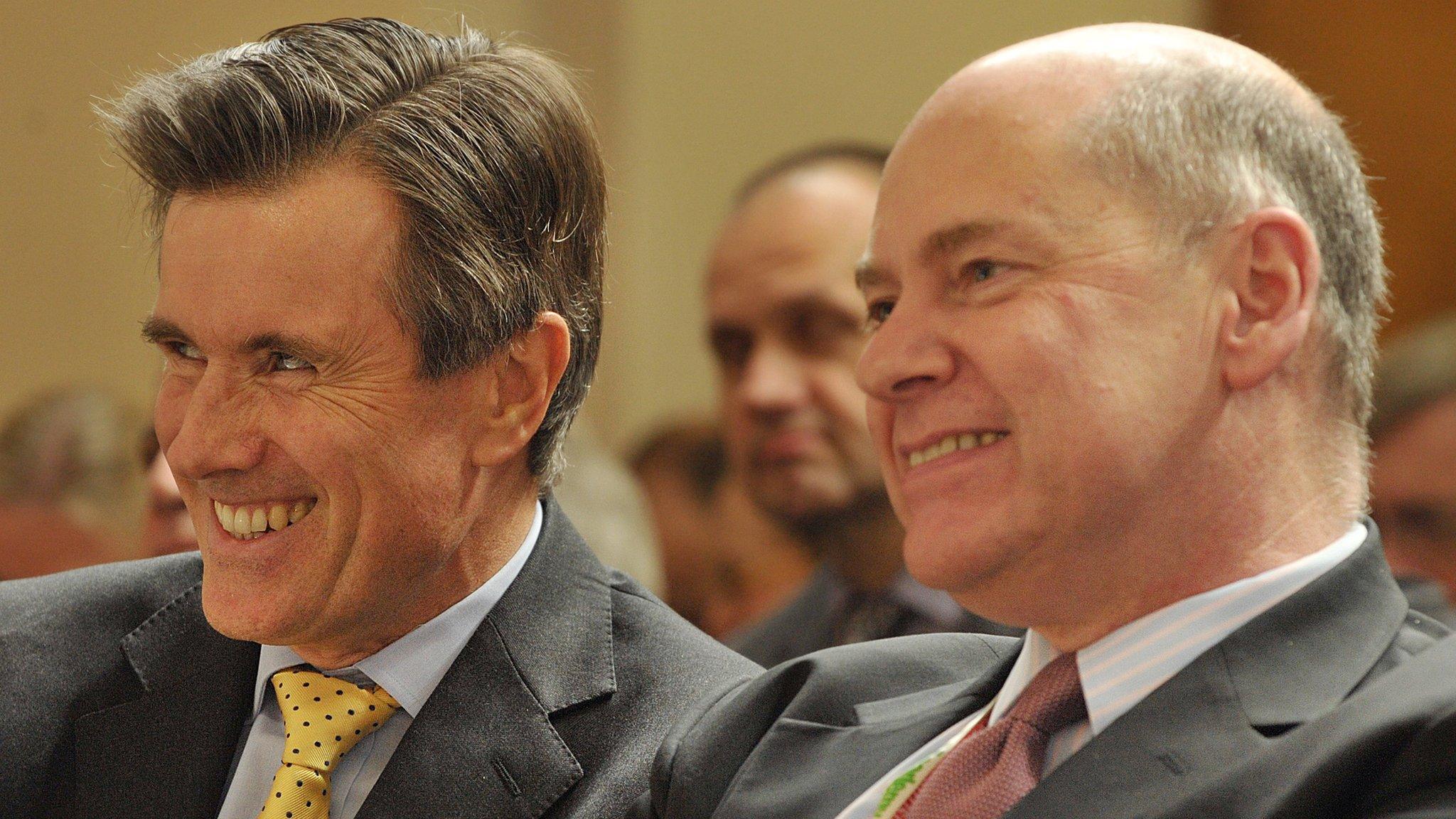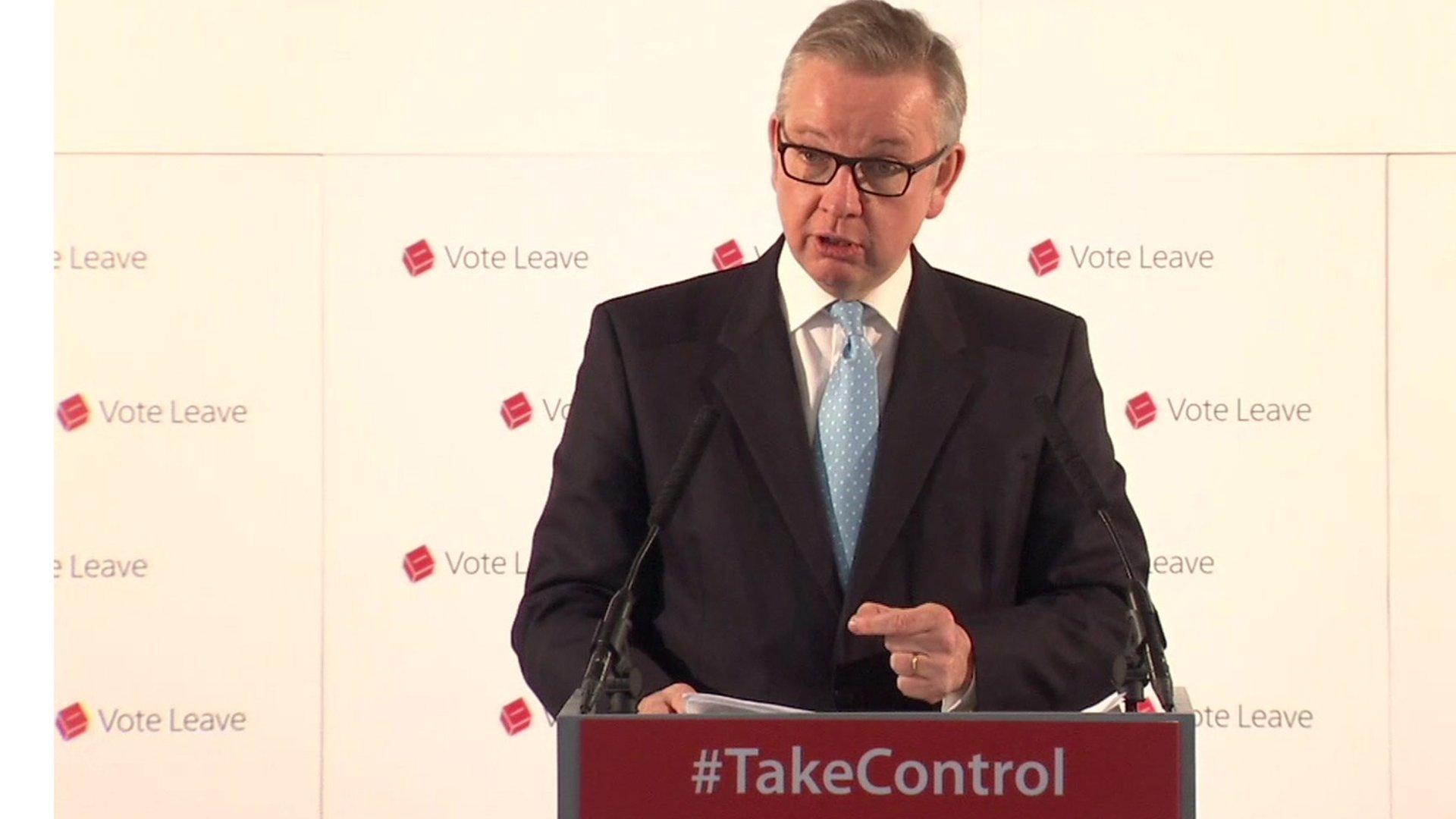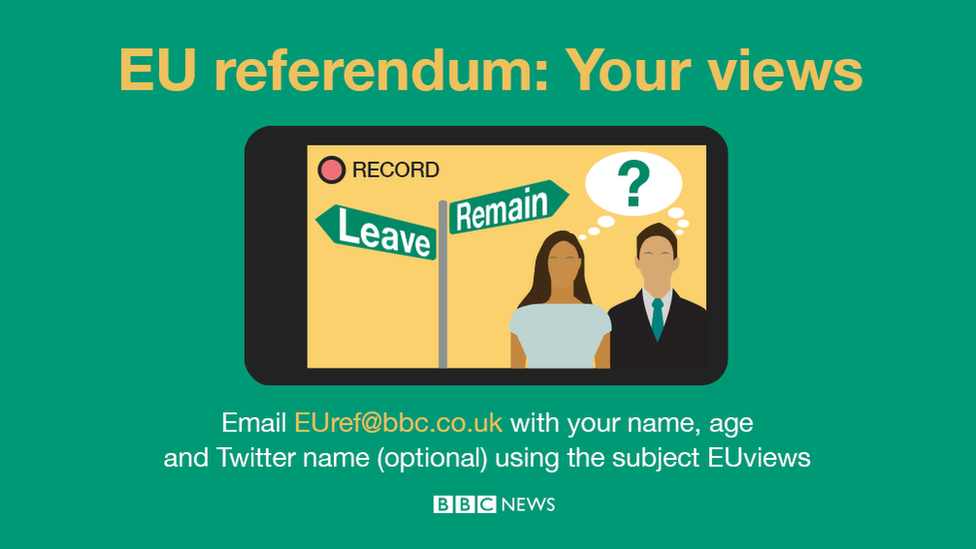EU referendum: Gove and Osborne exchange blows over trade
- Published
Justice Secretary Michael Gove dismisses claims the UK would be "punished" for leaving the single market
Michael Gove has clashed with cabinet colleague George Osborne after he said the UK could pull out of the EU's single market without damaging trade.
The justice secretary said the UK would not be "punished" for leaving the EU by having tariffs placed on its exports.
He said he could "not imagine" Germany putting up trade barriers which would threaten their own imports into the UK.
But the chancellor said this would be a "catastrophe" in terms of lost jobs and could "wreck the economy".
He also warned of a "significant shock" to the housing market in the event of the UK leaving the EU.
The battle has resumed in the EU campaign after Thursday's elections, with just over six weeks to go to the 23 June referendum which will decide whether the UK remains in or leaves the EU.
Attention has focused again on the impact of leaving on the UK's trade with the rest of the EU and what its trading relationships will look like - with Mr Osborne and Mr Gove - key figures on opposing sides of the argument - wading in.
The Remain campaign has argued the UK would have a couple of years to negotiate a totally new relationship with the EU or face potentially punitive tariffs on its goods in the absence of any formal agreement.
But, in an interview on the Andrew Marr show, Mr Gove reiterated claims he first made last month that the UK could have the best of both worlds by being outside the EU's single market.
'Win-win'
While the UK would no longer be bound by EU regulation, legal judgements and free movement rules it would, in reality, still have access to the EU's internal market of 500 million people since free trade across the European continent would not suddenly come to a halt, Mr Gove said.
"If you negotiate a trade agreement with a country with which you currently have tariffs, then you need to negotiate which tariffs will remain and which will be reduced," he said.
"If you don't have tariffs then both sides can agree there is no need to erect them. Germany carmakers are not going to want to have tariffs erected when they sell many more cars to us than we sell to them.

Analysis by the BBC's political correspondent Chris Mason
With this month's elections out of the way, the focus of politics shifts to a single topic: the EU referendum, just over six weeks away. The biggest protagonists on either side have returned to the central battleground: the economy.
Michael Gove, a leading Leave campaigner, repeated that, having left the EU, the UK should be outside its single market - which allows the free movement of people, goods, services and money.
Mr Gove said the UK would negotiate access to it, but not be governed by its rules.
His Conservative colleague, George Osborne, sought to pounce on the remark: leaving the Single Market would be "catastrophic" for people's jobs, he claimed; leaving the EU would push up mortgage costs too, he said. But remember, there are very few uncontestable facts here - both sides are trading in the same currency: predictions, guesses.

"And I can't imagine a situation if any individual nation of the EU wanted to erect tariffs, that others would let them."
With Germany importing far more goods to the UK than the UK exports to them, he said it was in the interest of their "political establishment" for the current status quo to be maintained.
"It is win-win for them at the moment," he said. "It should be win-win for us and it will be if we vote to leave and we can maintain free trade, stop sending money and also have control of our borders."
"I think it would be very difficult for any German finance minister to say to BMW I am afraid you are going to have to lay off workers because I want to punish the British for being democratic by erecting trade barriers...that won't happen."
Chancellor George Osborne: "Some people might think wrecking the economy is a price worth paying, I absolutely reject that"
But Mr Osborne told Peston on Sunday on ITV that EU exit would have damaging short and long-term consequences for the economy.
"Today we are getting to the heart of the matter. We have had the Leave campaign admit this morning that Britain would leave the single market - that is the largest free trade area in the world - that would be catastrophic for people's jobs, incomes and livelihoods.
"Now some people might think wrecking the economy is a price worth paying. I absolutely reject that... There is a long-term cost, equivalent to £4,300 to families if we leave. If we leave the single market, our analysis says we will be worse off than that."
Britain Stronger in Europe, the main cross-party group backing EU membership, said their opponents' admission that the UK should leave the single market was a "huge moment in the campaign".
Vote Leave said that while the process of extricating the UK from the EU and negotiating a new arrangement would take time, things would start to change "quickly" after a vote to leave,
While on opposing sides of the arguments, both Mr Osborne and Mr Gove sought to downplay the damage that Europe was doing to Conservative unity.
The justice secretary said reports that his relations with David Cameron were "in the deep freeze" was far from the truth while Mr Osborne said he expected Mr Cameron to remain in Downing Street "until the end of the decade" before stepping down.
Asked whether recent policy U-turns on benefits and academies were designed to appease Tory Eurosceptics and increase his chances of becoming the next leader, Mr Osborne said he didn't want "an easy life" or to "coast along" with the view of "moving next door one day".
- Published18 April 2016

- Published8 May 2016

- Published19 April 2016

- Published9 June 2016
